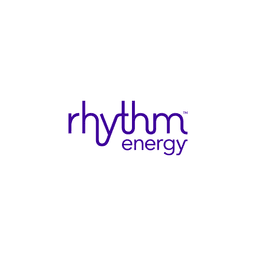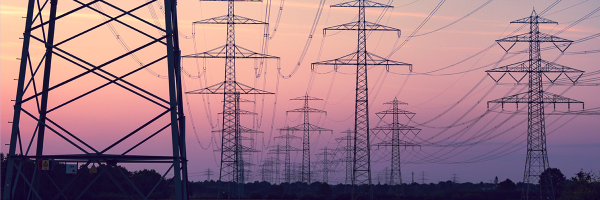Every action matters — especially when we’re talking about the future of our planet. And being more sustainable in our daily lives has a direct impact on our environment.
That’s right it all adds us. Your actions. Your friend’s actions. Your neighbor’s actions. And when you put all those actions together that’s quite powerful.
But greening up your habits doesn’t have to drain your wallet or uproot your day-to-day. Sustainable living can be simple and impactful. No matter where you’re at in life—age, salary, location, relationship— there has never been easier to do little things that make a big difference.
From recycling and reducing your waste to driving an electric vehicle or choosing solar power for your home, we’re outlining all the ways you can green up your life.
Under $50k— Harness The Three Rs
At this salary bracket, it is all about the three Rs: reduce, reuse, recycle. These are the foundations for sustainable living. While you’re working on growing your wealth, reducing the number of resources you use will help you save and invest more toward personal development. A win-win.
REDUCE — From frivolous spending on goods, to wasted food, to excessive natural resource use, there is plenty of opportunity to reduce your carbon footprint and energy consumption.
Two concrete ways to reduce:
• Mindful driving is not only a great way to save money through lowered fuel consumption, but it’s also a way to reduce anxiety and aggression while on the road. Frequent acceleration and deceleration — whether at highway speeds or in stop-and-go traffic — can reduce your gas mileage by 10%-40%. This aggressive driving style burns through fuel and money, enough to cost you between $0.25 to $1.00 per gallon of gas. On top of that, most vehicles see a rapid decline in fuel economy once reaching speeds in excess of 50mph. You could experience a 20% decrease in fuel economy when you are driving between 65mph and 80mph. By driving the speed limit and maintaining a steady speed, you’ll save on fuel and money and still get where you need to go.
• Efficient showers leave you feeling clean, healthy, and happy. The average shower-head releases 2.5 gallons of water per minute — that’s more than two times the recommended daily consumption of drinking water! By reducing your shower time, you are conserving one of the most (if not the most) precious resources. The average shower time is 8 minutes, but with care and intention, you can considerably lower your shower time and water consumption.
REUSE — Playing into the ‘throw away' culture hurts everyone and only benefits the large corporations producing cheap, single-use products (hello plastic water bottles). To break that cycle, consider acquiring reusable items or repurposing existing items you own to decrease your environmental footprint.
Reusable items:
• Water bottle
• Canvas shopping bags for groceries
• Reusable dish towels
Converted items:
• Empty glass jars as storage containers
• Old clothes as rags
RECYCLE — Smart recycling helps keep the process flowing. When it comes to recycled materials, think plastic bottles, glass jars, aluminum cans, and paper.
Between $50k - $100K — Live Locally & Support Sustainability
At this income level, you may live in a house, but it’s likely you’re still saving and working your way up to home ownership. While you may not be ready to invest heavily in the place you’re currently living, you can enhance your sustainable lifestyle by shopping locally, establishing a healthy garden, and supporting companies and other organizations that share your sustainable values.
FARMERS’ MARKETS — Shopping at Farmers’ Markets is fun, tasty, and empowering… both for you and the community. When shopping at Farmers’ Markets, you support local farmers who’ve often adopted sustainable farming practices, such as organic farming, integrated pest management, and responsible soil maintenance. In addition, Farmers’ Markets cater to local farmers, so food is produced locally — often well within a 200-mile radius — whereas meat and produce at grocery stores travel an average of 1,000 miles to get there. So, shopping at Farmers’ Markets not only supports local farmers and sustainable farming practices, but it also reduces the amount of packaging and fuel (or carbon emissions) needed to get your food from farm to table.
COMPOSTING & GARDENING — One of the sustainable practices embraced by local farmers is composting. And this is something that you can do at your home to reduce food waste and nurture a healthy garden. By placing organic food scraps and biodegradable material — such as eggshells, banana peels, twigs, and scrap parts from fruits and vegetables — into a bin with suitable amounts of water and air (and some worms if you want), you can create a system where biodegradable waste is broken down into nutrient-rich compost that can be used for your home garden or landscaping needs. In the US, food makes up the largest single source of landfill waste. By using appropriate food in composting, you help recycle nutrients back into the soil and prevent the buildup and pollution caused by wasted food at landfills.
MINDFUL SHOPPING — Every time you order a new product online or buy something at the store, it typically comes with plastic packaging material that winds up in a landfill. Instead of perpetuating that cycle, you can engage in mindful shopping that brings the experience closer to zero-waste. To more deeply connect with sustainable living solutions, check out places such as Refinement House for your home decor and body care needs. Or get more connected with the sources and raw materials used in the everyday products you purchase. For example, a common issue with products like shampoo, soap, peanut butter, and bread is the prevalence of palm oil — a vegetable oil whose rising popularity has led to mass deforestation and habitat destruction. To reduce your palm oil consumption, consider using eco-friendly brands for everyday items:
• For soaps, shampoos, and other body care products, check out Ethique.
• For peanut butter, take a look at Spread the Love.
SUPPORTING SUSTAINABILITY — Having a little extra cash around gives you the power to expand your impact through donation. There are plenty of worthwhile organizations that use individual patron donations to make real impact where it’s needed most.
Greenpeace — one of the largest environmental organizations funded entirely by individual donors, Greenpeace works tirelessly to drive real change in how businesses, corporations, and governments operate and interact with our planet. Greenpeace was a real driver in bringing awareness and change to the harmful impact that palm oil plantations were having on tropical rainforests.
GivePower — working at the intersection of water and energy, GivePower provides solar-powered water generating systems to communities in need. Their system in Haiti delivered much needed water to communities impacted in the recent earthquake.
Legacy Collective — a giving community dedicated to funding nonprofits addressing systemic issues with sustainable, innovative solutions, Legacy Collective recently announced their new program called the Texas Disaster Relief Fund. Donations collected from this emergency fund will be used to provide food and shelter to those in need across the state of Texas. This will include helping Texans with emergency relief, food insecurity, and rebuilding efforts.
One Star Foundation — with a goal in mind of helping strengthen Texas communities when disaster strikes, One Star’s new program, the Rebuild Texas Fund, connects your helping hand to Texan communities in need.
Between $100 - $150k — Create Your Sustainable Space
At this income range, you may be a homeowner or eyeing your own property, so you can start to implement systems at home that elevate your sustainability, save energy and really lower your carbon footprint.
SOLAR ENERGY — With a residential solar system, you will experience lower electric bills as you generate clean, renewable energy right there at your home. Because the power is being generated close to where it’ll be used, your residential solar system also reduces the need for utilities to build out centralized power stations and the accompanied transmission network. With lower energy costs, available tax incentives, and flexible financing options, you can increase your cash-flow via a solar energy system that doesn’t pollute, doesn’t require water, and that brings value to the whole community. Whether you choose to go green by switching over to a renewable energy plan or go green by investing in the sun with solar panels, any first step is a good one to start doing your part for the planet.
WATER CONSERVATION — Despite 75% of our planet’s surface being covered by water, there is only a small fraction of water available for clean drinking and we all must share it. That said, conserving water is a great way to protect a vital resource and contribute to sustainable efforts.
Grey water recycling — Water from washing laundry, taking showers, and using sinks typically flows out as sewage and is treated as such. This ‘grey water’ accounts for roughly 50% of residential indoor water use. With a grey water system, some of your water outflow can be diverted away from sewage and repurposed for landscape irrigation or to flush toilets. This responsible water usage not only saves on your water bill, but it also helps preserve precious water resources, offering environmental benefits.
Rainwater harvesting — From the sky to your lips, rainwater harvesting provides opportunity to supplement your potable water with natural resources (rainfall). Some systems can be self-installed while others require professional installation services. Collecting rainfall for drinking water has many environmental benefits. Of course, it reduces the amount of water you need from your local municipality, but it also helps reduce stormwater runoff, erosion, and the need to build out costly water distribution networks.
THOUGHTFUL LANDSCAPING — Having plants and trees that are well-suited for the local environment can go a long way in promoting the health of your local ecology. Reducing grass coverage with low water intensity bark or rock can have a significant impact on the amount of water needed to upkeep your yard. Consider plants that work well with your soil type, do not require large amounts of water, and that support local pollinators such as bees and butterflies. For instance, the Texas mountain laurel is drought resistant, does well in direct sunlight, performs well under alkaline soil conditions, and attracts bees.
$150k+ — Electrify Your Life
Now you may be prepared to make purchasing and investing decisions that transition your life away from fossil fuels and towards electrification and putting your money where your sustainability-loving heart is.
SOLAR + BATTERY STORAGE — By itself, a solar system is great for providing clean, reliable, locally sourced power. With battery storage, your energy system becomes more resilient, as power can be deployed when the solar system isn’t running, such as at night or during emergency blackout situations.
ELECTRIC VEHICLE (EV) — Whether it’s a Tesla or the brand-new Ford F-150 Lightning, you can reduce your carbon footprint by driving an EV instead of a gas-guzzling car. A Consumer Reports study shows that the average EV owner doing the majority of their vehicle charging at home will save between $800 to $1,000 a year on fuel costs compared to having a traditional gasoline-powered vehicle.[5] Running on electricity, your EV won’t contribute to local air pollution (especially when you charge it from your solar-powered home) and will help reduce demand for foreign petroleum used in traditional transportation.
HOUSEHOLD APPLIANCES — Converting your home appliances to run on electricity moves you away from fossil fuel dependency and improves the air quality within your home.
• Electric stove — Despite stressing the importance of outdoor air quality and implementing a protocol to reduce outdoor pollutants, the US does very little to regulate indoor air quality. Interestingly enough, people with gas stoves may be exposing themselves to air conditions that would not be permissible under the outdoor air quality standards set by the Environmental Protection Agency (EPA). Gas stoves emit carbon monoxide — a colorless, odorless gas that can be lethal in concentrated dosages — right into the home. You can change all that by converting to an electric stove.
• Heat pump — A heat pump can efficiently run your home’s heating, cooling, and water heating needs. Working much like a refrigerator, the heat pump passes warm air from one place to another in order to meet ideal temperatures. This is different than a furnace or gas water heater which depends on burning material to directly produce heat. If suitable for land conditions at your home, geothermal heat pumps are an appealing option for their reliability and energy efficiency, often reducing energy consumption by 30%-60%.
SOCIALLY RESPONSIBLE INVESTING — Large amounts of capital are now flowing into the ‘green’ space as investors and financial institutions see the writing on the wall for fossil fuels and anticipate growing demand for sustainable solutions to meet today’s climate challenges. From plant-based meat to electric vehicles, to hydrogen fuel cells, to critical minerals such as lithium, there are many opportunities to build your fortune by investing in the future of energy.
Many people experience great fulfillment from sustainable living, even if their lives don’t revolve around it. No matter what you make there are tons of ways to be more sustainable, which can help the planet and your wallet.
At Rhythm, we are very appreciative of the opportunity to share the power of sustainability, and we take pride in providing our customers with energy plans that come from 100% renewable sources.




